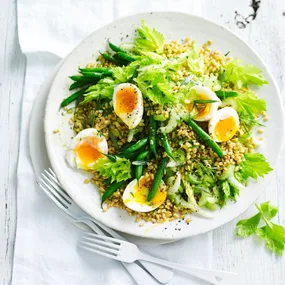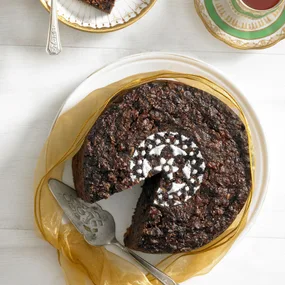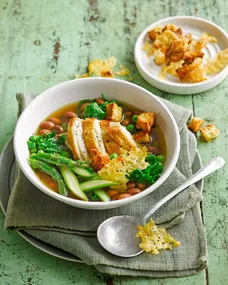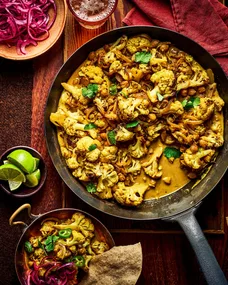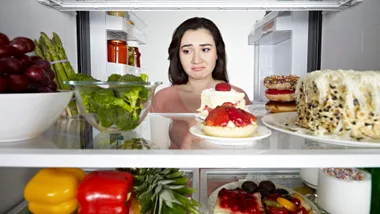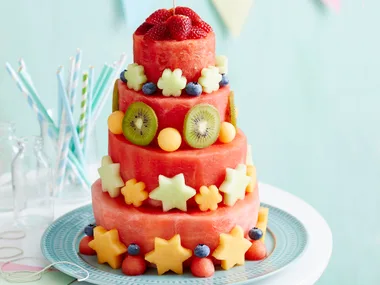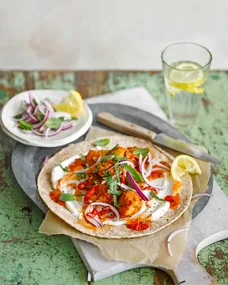Iron is extremely important when it comes to our health and wellbeing, however, it is estimated that up to five per cent of the Australian population suffer from iron deficiency anaemia.
Iron is an essential mineral necessary for the production of red blood cells, which carry oxygen from the lungs to the rest of the organs and muscles.
There are two types of iron: heme, found in animal foods, and non-heme, found in plants.
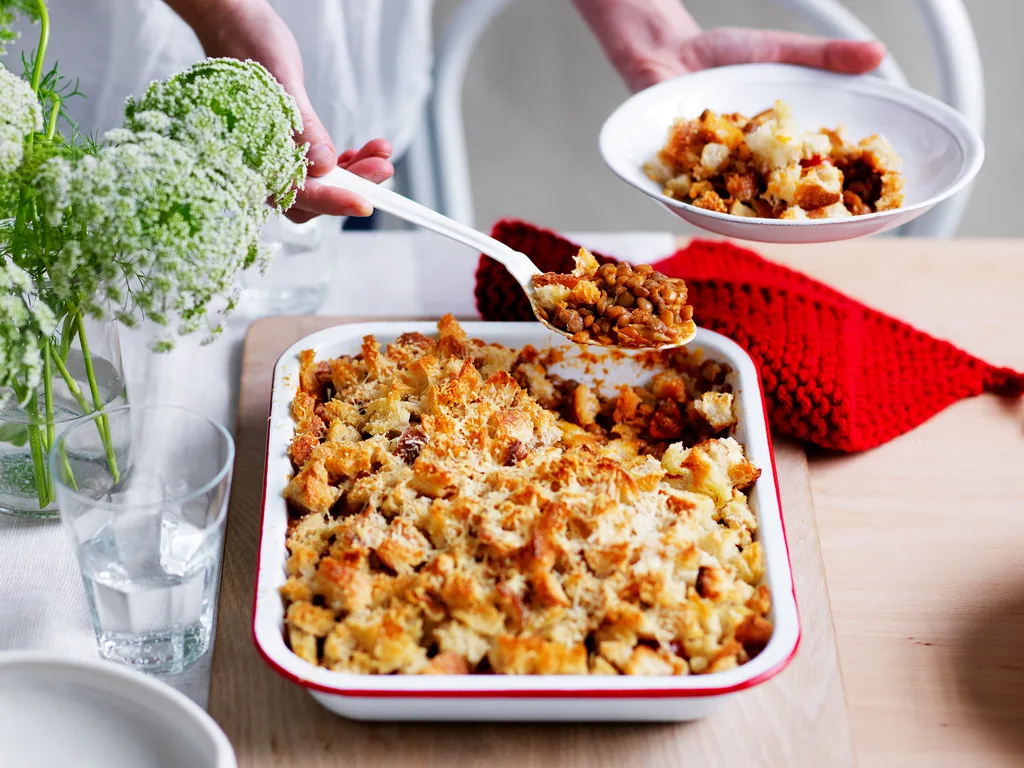
Try this wholesome lentil and tomato bake for a nutritious, iron-rich family dinner.
Some great sources of non-heme iron are:
Legumes like lentils, peas and baked beans
Nuts (don’t forget about nut butters) and seeds
Soybeans, tofu and tempeh
Quinoa, brown rice and wheatgerm
Spinach, swiss chard and kale
Pumpkin and squash
Dried apricots
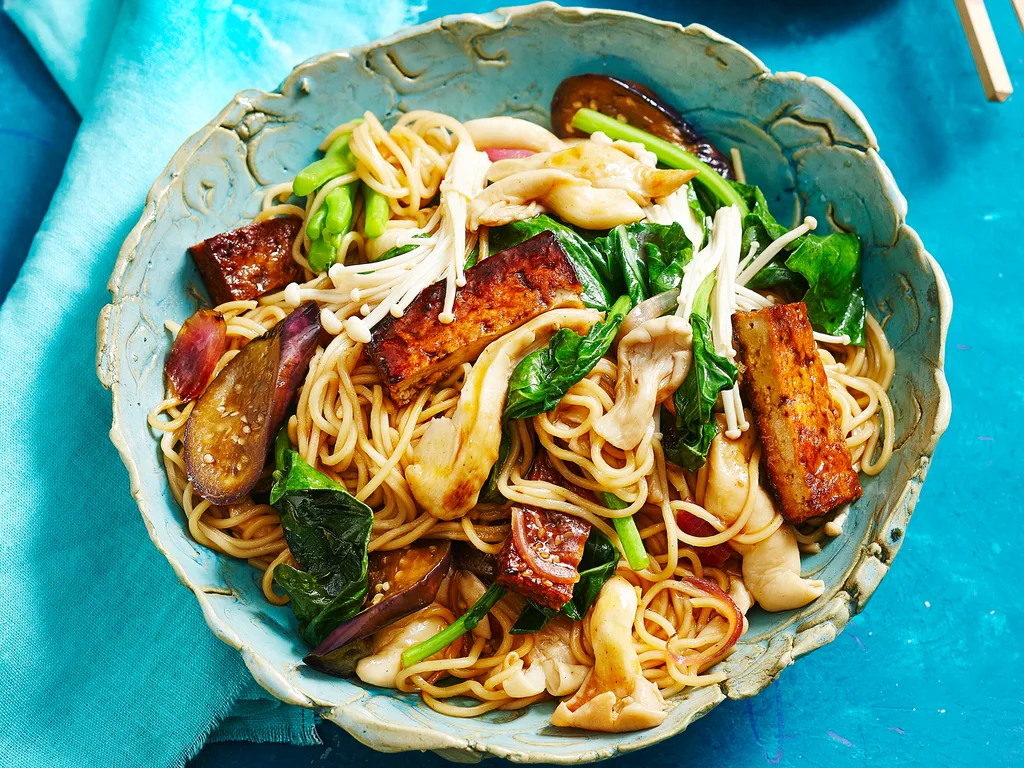
This stir-fried eggplant, tofu and mushrooms recipe is packed with iron.
Unfortunately, even though vegetarians and vegans can get their daily iron intake from a huge range of foods, non-heme iron isn’t absorbed as easily in to the body as heme iron.
And research has shown that focusing on iron absorption, rather than consumption, is key.
So the best way to boost the absorption of iron for vegetarians? Get some vitamin C in at the same time.
Adding vitamin C-rich foods can increase the absorption of non-heme iron by up to five times. Try drinking fresh orange juice with your omelette, for example, or adding a tomato-based sauce to your pasta and veggies to up your vitamin-C levels.
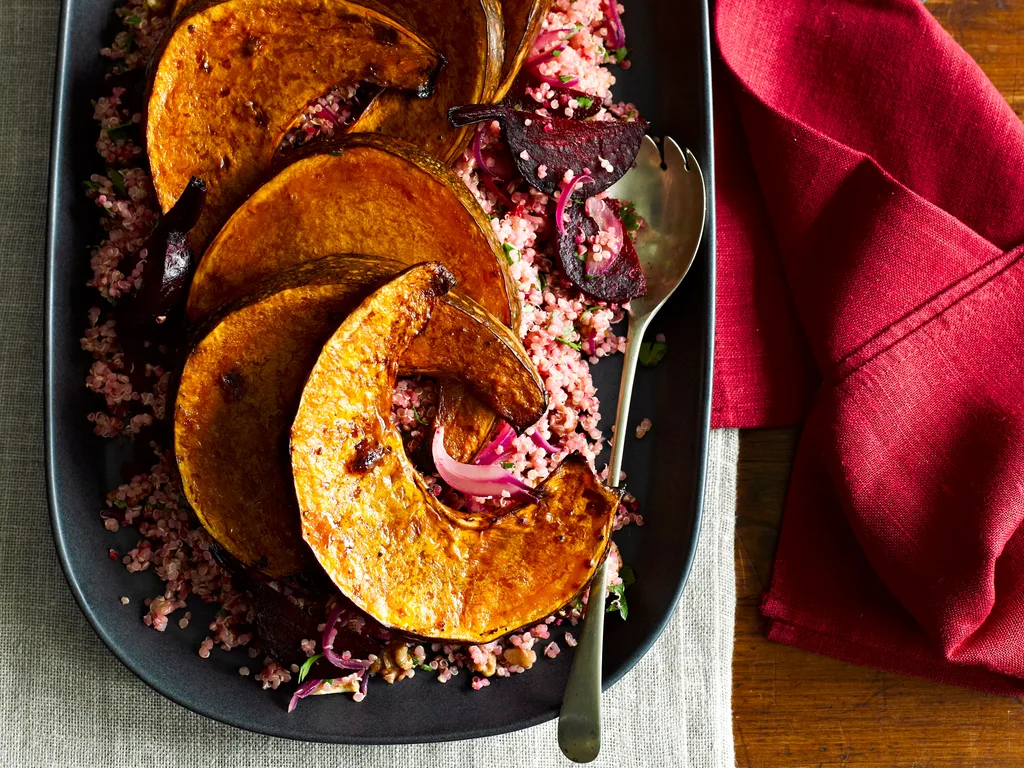
Adding slices of orange during the roasting process of this balsamic roasted pumpkin with beetroot quinoa can deliciously boost your iron absorption.
Eat smaller amounts of iron-rich foods more often, too; the less you eat at one time, the better it will be absorbed. Spread your daily intake across your meals and snacks, rather than taking it in one go.
Also, steer clear of coffee and tea for a couple of hours either side of your meal. They contain tannins, which can inhibit iron absorption – even decaf.
The National Health and Medical Research Council recommends that men intake 6mg of iron a day, and women 8mg. (Women can decrease their daily intake to 5mg after the age of 50 when menstruation typically finishes.)
In real terms, that means half a cup of boiled lentils, half a cup of spinach, or half a cup of tofu can each provide over 3mg of your daily iron needs, while half a cup of boiled soybeans delivers over 4mg.
If you have any concerns, though, or you’re afraid you may be suffering from an iron deficiency, don’t be afraid to have a chat with your doctor.

